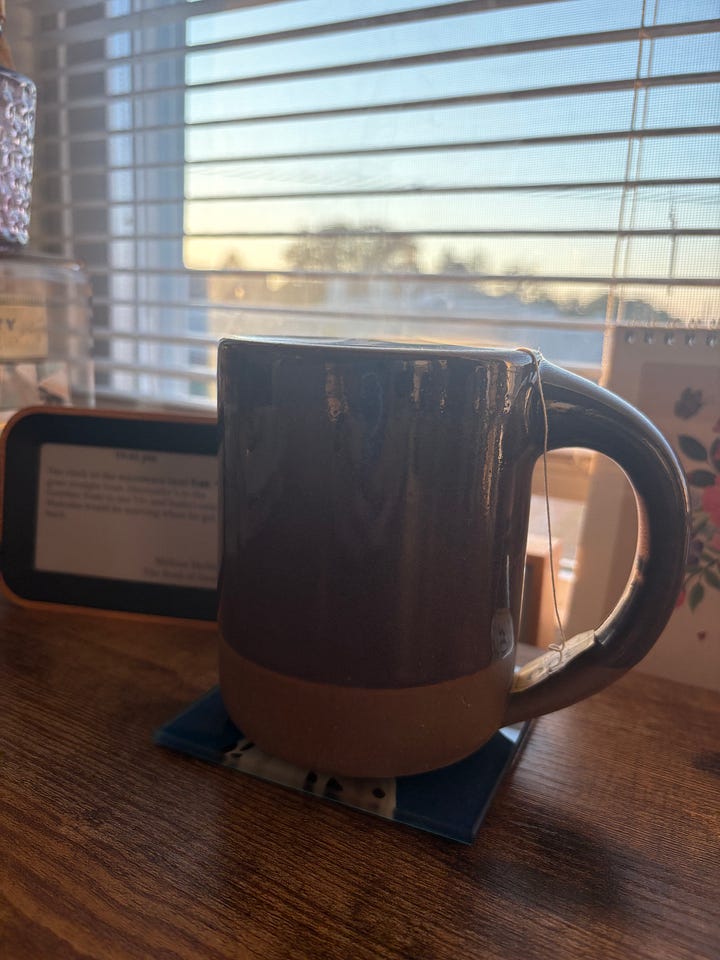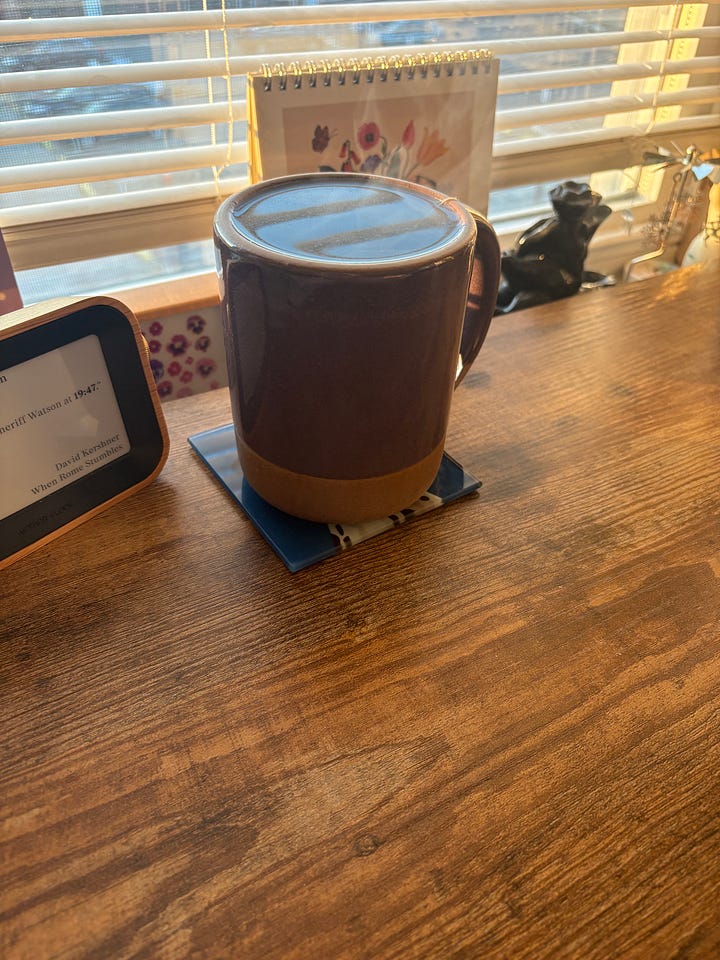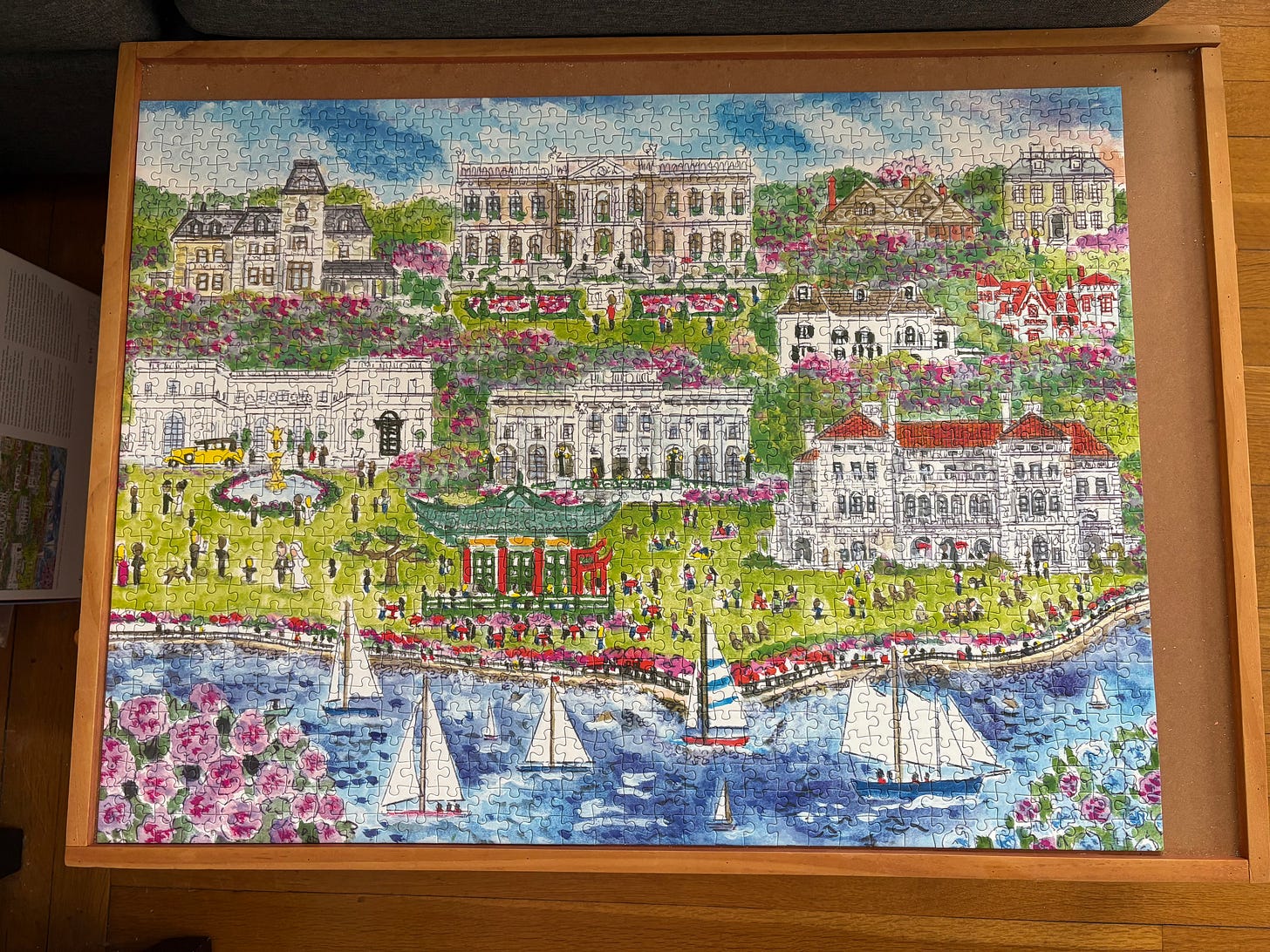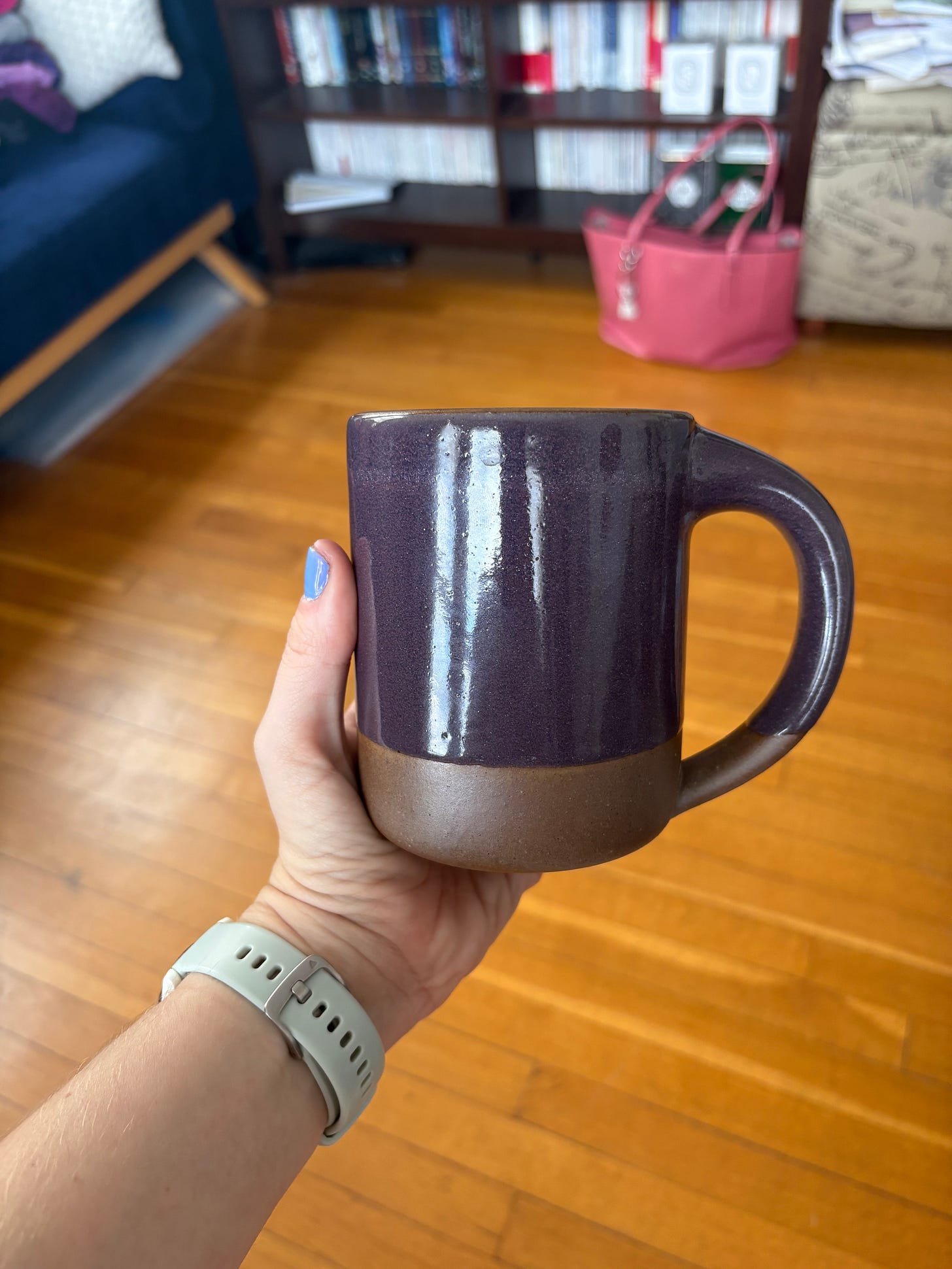How to Read Diversely
From a cis, white lady
This is not a joke, though you are forgiven for thinking such. You might be thinking, Marissa, you are the worst person to be talking about reading diversely! You are a standard white lady represented in so many books! - which is correct. I’d argue that’s what makes it even more important that I do so. I’m white, female, blonde, blue-eyed and of European descent: there are no shortage of books with protagonists that fit my exact description. So, to make sure I have a greater understanding of the world than through my own narrow viewpoint and experience, I try to read diversely.
Now, more importantly, why should you care about reading diversely? In and of itself, deciding what to read is an individualized process. Why would you want to change what you’re doing? If it’s not broke don’t fix it etc. But - we know a few things about reading: reading makes you more empathetic.1 Reading can help you live longer.2 And while sure, you can get these two benefits from reading the same type of books over and over again, there are also cognitive benefits to reading diverse books, too.3 I’m not the only one who is curious about how folks decide what to read.
of Lit Mag News recently asked very similar questions.From my own perspective, I am not Schrodinger’s cat: I cannot be everywhere and do everything at once. I can’t live all the lives I want to, I can’t have all the experiences I want to have. I am also locked into the body and the experiences I grew up with. That’s not necessarily pessimism; that’s just fact. By expanding my own reading practice, I can expand my life experiences as well. Vicariously living through others, and all. Even with this framing, I still tend to read the same types of books. While this graphic from my 2024 reads is diverse, please note how many books are in the fantasy and romance categories: I read over 30 books that could be categorized as fantasy, and nearly 20 that could be categorized as romance.
While it isn’t necessarily my goal to turn you all into Chaotic Readers (yet), I do think it’s important to reflect on what you’ve been reading. Specifically, if you tend to read the same type of books. This isn’t to shame anyone - we all have preferences and biases, it’s a fact of being human. We like what we like, and we want more of it! But reading diversely is chaotic reading - it’s reading widely, across genres and languages, across formats and not sticking to the exact same thing every single time. It’s why I have no brand - the utter chaos of my genre chart cannot be summarized into a pithy one-liner.4
Now, this is what this is not: I am not here to bash or malign any writer/reader/BookTuber/BookToker/content creator for their specific lane. I myself enjoy following a lot of book content creators, because I then get exposed to lots of different books. It’s helpful to me that they’ve all chosen a lane, and then I can pick and choose what works for me.5 If all you’re into is rom-coms, or thrillers, or memoirs and nothing else, then that’s absolutely fine. You do you. This is just an invitation to expand your reading palette and how to do so.
Why accept this invitation? Because like I said - we’re human, and by virtue of being human, we have innate biases and blind spots. It doesn’t make you a bad person: it simply makes you a person. And if you have realized you read more or less the same type of book and want to change that, then I have some suggestions for you.
This all started a few weeks ago when I realized I hadn’t read a book by a man in a good long while. Even with the above genre chart, I tend to read books that:
are written by women
who are often queer
that fall into the science-fiction and fantasy genres
I am nothing if not consistent. I have been this way since I was a teenager. I did go through a ‘Not Like Other Girls™️’ phase right out of college, because I was deeply depressed by the popularity of Twilight, given how existentially bad the writing was.6 I couldn’t get over how poorly it was written. I have written about vampires more than once here, so I am not against the vampire genre, just vampires written badly. In fact, I will forgive A LOT in a book as long as the writing is good. If the writing is bad, my most critical self comes out. In any event, because of that event I read only literary fiction for a few years, gaslighting myself with the propaganda that mimetic literary fiction is the only ‘good’ fiction.7
That’s neither here nor there. What is here is that I wasn’t reading a lot of books by men. This is all well and good, men have historically been the most published throughout history, but I should probably read a book by a man every now and then. See what they’re up to over there and all. So I read Jeunesse, by Pierre Nora. Nora was a French-Jewish historian who survived the Nazi occupation of France. He went on to study and write a lot about the historical memory of the French to great success, and Jeunesse is his memoirs of how his youth (which is what Jeunesse translates to) influenced the rest of his life. So for me, this was diverse from my historical reading pattern because:
It was in French (French is my second language; I primarily read in English)
It’s a memoir (I tend to read fiction)
It’s by a man (I tend to read primarily women)
The author is Jewish (I was raised Catholic and am culturally Catholic)
Where this does fit into a pattern for me is that I tend to read a lot of books about World War II and its history. Both of my grandfathers fought in the war, so I have some personal connection to those events, which is why I gravitate towards books about that timeframe.8
At a minimum, this was me taking a moment, acknowledging what I tend to read, and then choosing something that doesn’t fall into those same categories.
Ok, but if I wanted to go deeper, to read even more diversely from my day to day habits, what would I consider? Here’s a non-exhaustive list of things that I tend to look for when considering how to break out of my regular reading comfort zone:
Type (Fiction, non fiction, poetry)
If you only read fiction, maybe try some non-fiction, or vice versa. While poetry is often coded as non-fiction, it’s its own thing. The usage of language and format is very different in poetry than non-fiction and fiction, and needs to be read with a different eye than fiction/non-fiction.Genre
There are so many genres within each type of book, that you could explore forever without reading the same genre of book twice. Maybe you read only non-fiction books. If you don’t like fiction at all, and want to try something different within non-fiction, you could try: essays, cultural or artistic criticism, memoir, academic studies, history and so on. Within fiction, there’s: mimetic literary fiction, fantasy, science fiction, romance, romantasy, thriller, mystery, and on and on and on. There’s even different types of poetry, too: narrative, lyric, dramatic, epic, to say nothing of the specific type of poem formatting. The options are truly endless.Racial/Ethnic Background
I’m thinking of both the background of the author of the book and the characters, too. Again: white, European descent lady who lives in America, so I try to read books written by non-white folks and with main characters that are non-white. Translated literature has gained popularity in the past few years, so there are lots of options outside to read diverse ethnic stories outside of Anglo centric literature.Socio-economic Class
Money is still a taboo topic (in America, at least) but the experience of either having it or not having it fundamentally shapes a person’s life. Like I mentioned earlier with men being predominantly published for most of history, many authors prior to modern times were also rich or heavily financially supported. Meaning that unless you had a bunch of cash, writing was a no go for you.9 Platforms like Substack and self publishing have made literature more accessible, but it’s also important to try to seek out working class writers, middle class writers, writers from literally any other class than the one you’re familiar with. This is also a tricky subject as class can change, and is not a fixed identifier. Haley Larsen did a series earlier this year at what constitutes ‘working class’ literature if you’re interested.Disability
As I’ve mentioned previously, becoming disabled is one of the few identifiers that can happen to a person at any time. Ableism is still a problem in American culture, and so making sure you’re reading authors who aren’t just able-bodied is important. Remember, disability runs the gamut: this could be mental (like anxiety or depression) or physical. Rare diseases and health conditions also count, too.Language
For me, I’m talking about both reading in English & French here, and reading translated literature. If possible, I’d love to read everything in its original language, but that is impossible. So I read in French where I can, and read translated literature elsewhere. Reading translated literature adds another level of complexity as we’re not reading the author’s original words but an approximation. This is also a shout out to translators, who are often not paid much and do the Lord’s work. Thank you, translators. So go read some translated literature so we still can read books from across the world.Format (structure of the text itself, and physical, eread, etc)
Once again, I mean format in one of two ways: the structure of the text (how the story is told, how many points of view there are, etc.) and whether it’s a physically published book, an audio book, or a digital copy. The physicality of a book can be experienced in a variety of different ways, and it can be interesting to venture out of your comfort zone. While I know I’m not the biggest audiobook fan, I do enjoy them in certain circumstances.10 You might only listen to audiobooks, and may want to try reading on a Kindle or borrowing books from the library. Or vice versa!Publication (date and format)
This mainly gets at the split between traditional publishing (one of the Big 5 Publishing firms etc) or indie publishing, which is done outside of the ‘traditional’ formats. There are merits to both! Traditional published books tend to be better edited and formatted. Indie published books are more open and flexible meaning that literally anyone can publish, so the breadth of what’s available is greater: there’s no gatekeeping. I also mean time here, too. As in - current day, ancient plays, 18th century literature, etc. If you only read contemporary literature, it may be interesting to read some older works to see if the trends and themes you like originated in certain older works. The world is your oyster!
There are literally thousands of ways you can split these hairs, and that’s the point. Thank goodness there are millions of books available, because we all have such varied interests. This is also when phoning a friend can be of great help. Quizzing people about what they’re currently reading can also broaden your reading horizons.
A note on identity: no author owes you information about how they identify, and some identity markers are easier to spot than others. I fully acknowledge that this can sometimes be a difficult endeavor trying to determine whether someone identifies with a particular group or in a particular way, especially if that information is not readily available. Do your best; the fact that you’re trying to read widely is important enough as it is.
I also think this is an important endeavor because there are many groups of people who haven’t traditionally had access to publishing. While the Black Lives Matters protests in 2020 did start some conversations around whiteness in publishing, not much movement has been made there. Publishing in America tends to be centered around New York, and literary fiction. Who knows what good stories are being overlooked because they don’t fit within a preconceived notion of what a book is supposed to be? It’s what makes me so angry every time another movie studio does a remake of some 80s or 90s cult classic, because do you know how many original stories there are out there??? Stop with the Spiderman and Fantastic Four movies already!11
We are entering ‘I’m not going to tell you what to do n-what-n-all’12 territory. Ultimately, it’s up to you to decide what you want to read. But I would also pay attention to what people don’t want you to read and ask yourself if that’s worth your attention, too. Specifically I’m thinking of the increase in book bans in the US. PEN America has resources if you’re interested, but nothing says sticking it to the man than by reading the diverse books the man doesn’t want you to read.
I am one person. This is how I approach my reading and how I interrogate my habits. If I’m missing anything glaringly obvious, as in - my blindspots have overtaken me - then please let me know in the comments! I always like to expand my reading habits. I hope you will, too.
No New Books™️ Challenge
We are holding strong. The books are not being bought. I am enjoying the numerous titles I already have. All is right with the world.13
Longest streak: 38 days (January 1st - February 6th)
Last streak: 14 days (May 7th -20th)
Current streak: 21 days (June 18th - Present)
Mug Moment of the Week
If there is one thing I can promise you, it’s that I will always like the color purple. Today’s Mug Moment is another newer acquisition, once again from East Fork because I appear to have a problem with acquiring hand made ceramics now.


This was a recent limited release from East Fork; the shade is called Gumdrop. It is very pretty and very glossy. And! Just one color all the way around, so I don’t have to subject you to my cinematography (for now.)
That’s it for this week! Next week we’ll get around to what I read in June.
https://pmc.ncbi.nlm.nih.gov/articles/PMC3559433/#:~:text=Indeed%2C%20there%20is%20evidence%20suggesting,consequently%20influencing%20empathy%20%5B32%5D.
https://communications.yale.edu/sites/default/files/08.08.2016_do_bookworms_live_longer_new_study_links_reading_more_books_to_longer_tech_times.pdf
https://firstbook.org/solutions/diverse-books-study/
Though you are most welcome to try.
I have just given myself an idea for another post, ha.
Twilight was and is not for me. If you enjoy it, love that for you.
It is not and don’t let anyone ever tell you so.
I am not alone in this. See: many major motion pictures and the entirety of the History Channel which can be summarized as WWII and Aliens. Yes, it’s a meme. No I did not make it up.
There is a real argument to be made that that is still the case, but I’m not here to have that discuss today.
Namely: if it’s a memoir and the author is narrating.
No shade to comics; I do love them. But I do not think we need YET ANOTHER reboot of Fantastic Four. Stop it already. Either choose someone else from the comics or find a better script. *bangs gavel*
An oft-repeated phrase from my Ciocci Joanie, may she rest in peace.
Very much not, but my wallet is happier.








I love that gumdrop color!
I love this topic and you’ve laid out so many great things to consider. I got overwhelmed when I first started trying to read diversely so I just tried to start in one area and get comfortable (books in translation on topics/themes that interest me). I sometimes take my reading too seriously this is not a test Natalie! 🥴
I love the intentionality behind your approach — I try to do the same!